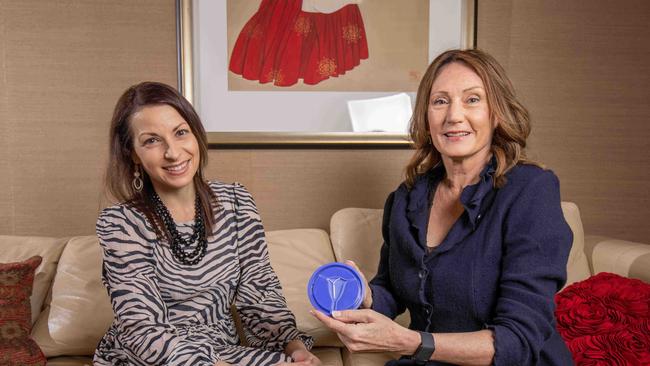Adelaide’s pain killer contraceptive ready for human trials.
A revolutionary Adelaide-made contraceptive that could calm pain from pelvic problems to headaches is ready for its first tests on women.
SA News
Don't miss out on the headlines from SA News. Followed categories will be added to My News.
A revolutionary Adelaide-made contraceptive device that also prevents pain is ready for its first tests on women.
The intra-uterine device (IUD) developed and made in Adelaide calms excess immune activity in the uterus which can manifest in pain throughout the body.
While the initial trials are aimed at easing pelvic pain, the research team hope it will be useful for preventing pain ranging from irritable bowel syndrome and painful bladder to migraine headaches.
In a world first, its developers now are seeking 12 women in Adelaide for the first-in-human trials.
The women need to have had at least one child by vaginal delivery and suffer from period pain, and will wear the device for three months under supervision from specialist gynaecologists.
Women who have not had a child will be eligible for a later trial.

Dr Susan Evans, gynaecologist and founder of biopharmaceutical company Alyra Biotech based at Eastwood which last year was granted a US patent on the technology, said the human trials follow five years of development.
“This will be the first time anything like this has been used in a human,” Dr Evans said.
“People talk about the gut-brain axis but this is about the uterus-brain axis — the uterus talks to the brain via the immune system.”
Excess immune activation in the uterus can send signals to the central nervous system which can result in chronic pain.
This occurs via three mechanisms: Nerves that supply the uterus become sensitised. Immune cells in the uterus then become activated and travel via blood circulation to the central nervous system. Then the activated immune cells release chemicals called cytokines that make people feel unwell.
Alyra Biotech has developed products that turn down the excess immune activation in the uterus to reduce these symptoms.
A low dose immune inhibitor is added to the IUD for sustained release, making it a combined contraceptive and pain prevention device.
Dr Evans noted the inhibitor drug has known efficacy and long-term safety data in humans, and an added bonus is the pain prevention can reduce the need for opioid medications.
“The drug in the device turns down the immune activation — it targets the problem to reduce the symptoms,” she said.




